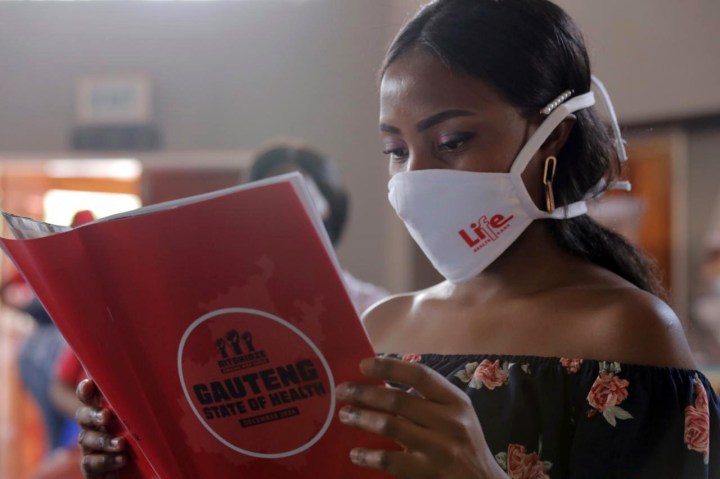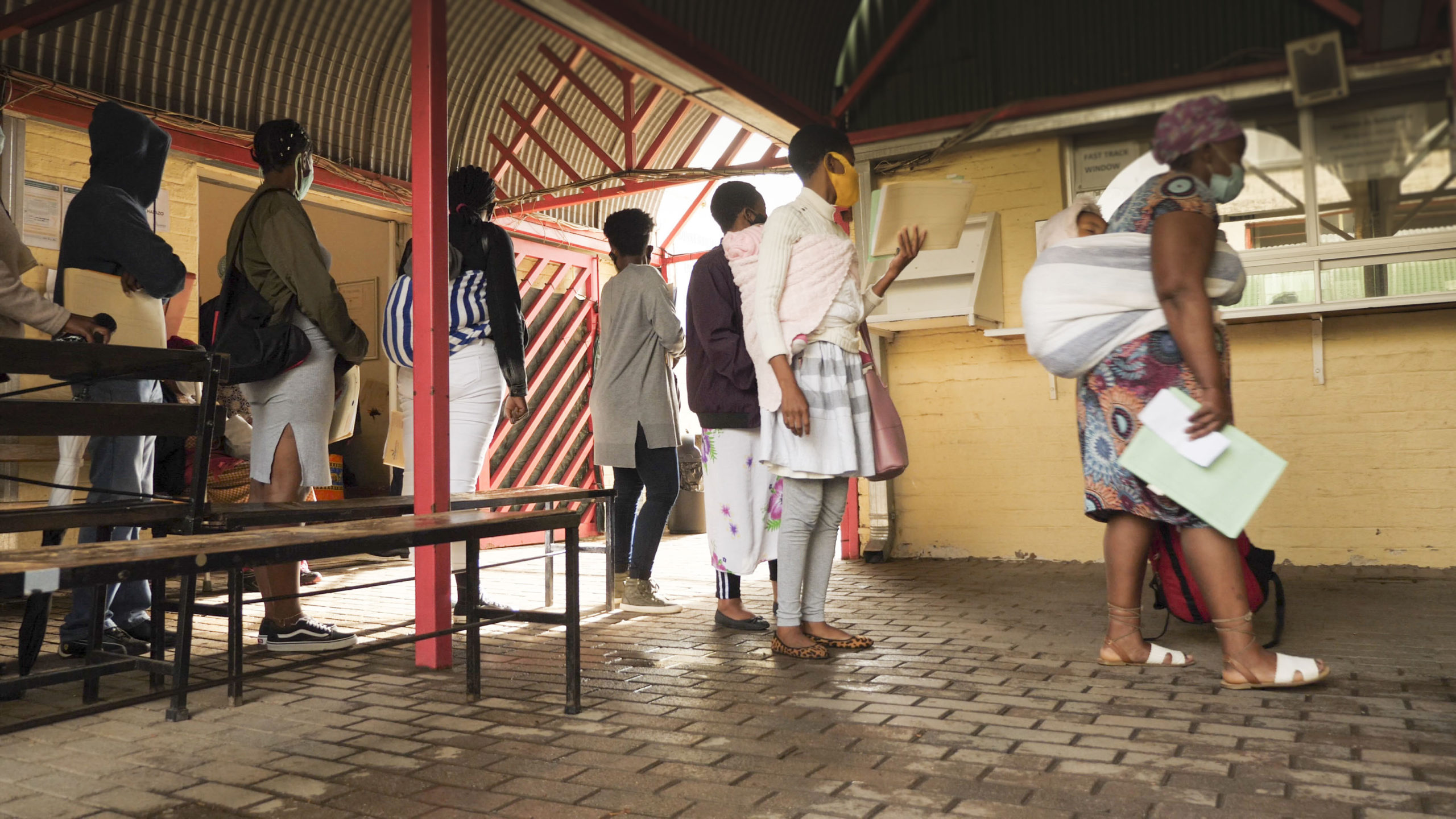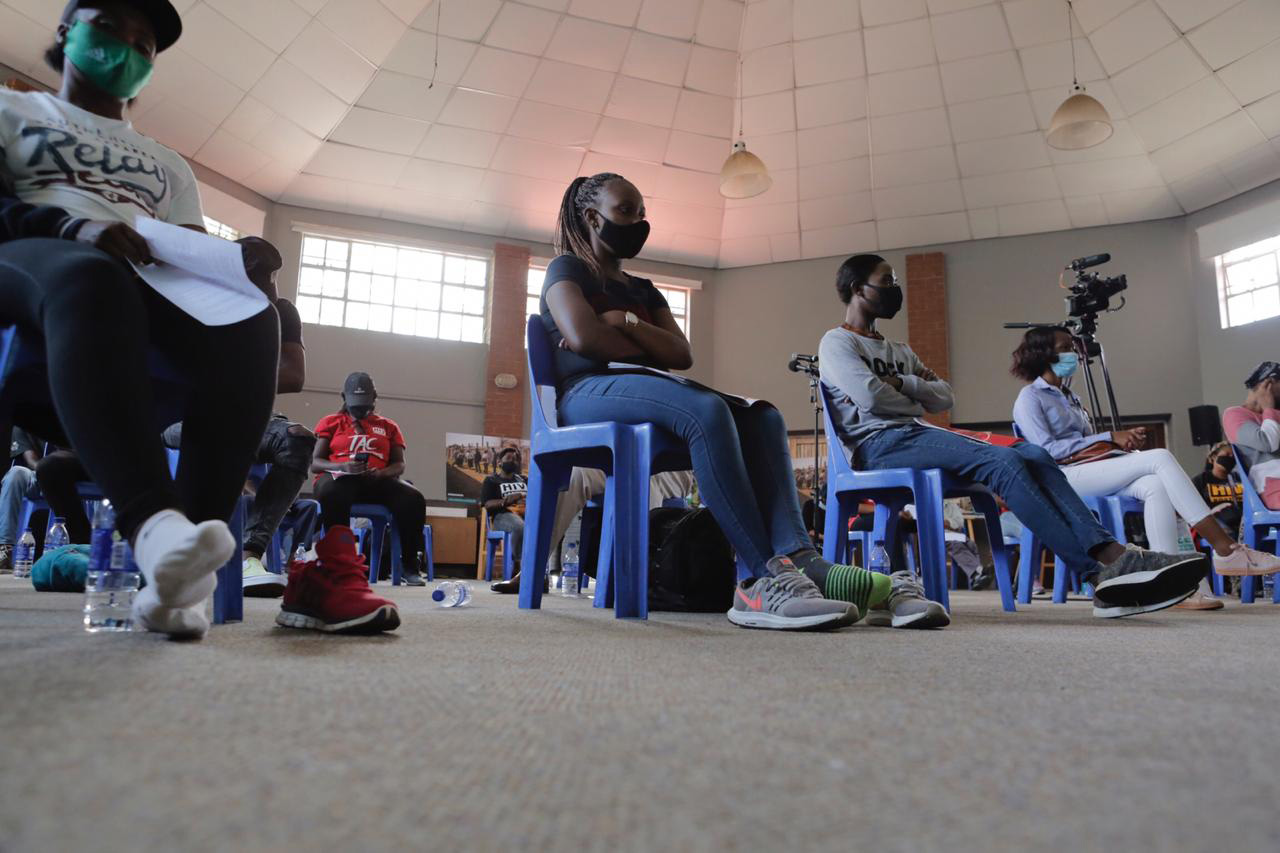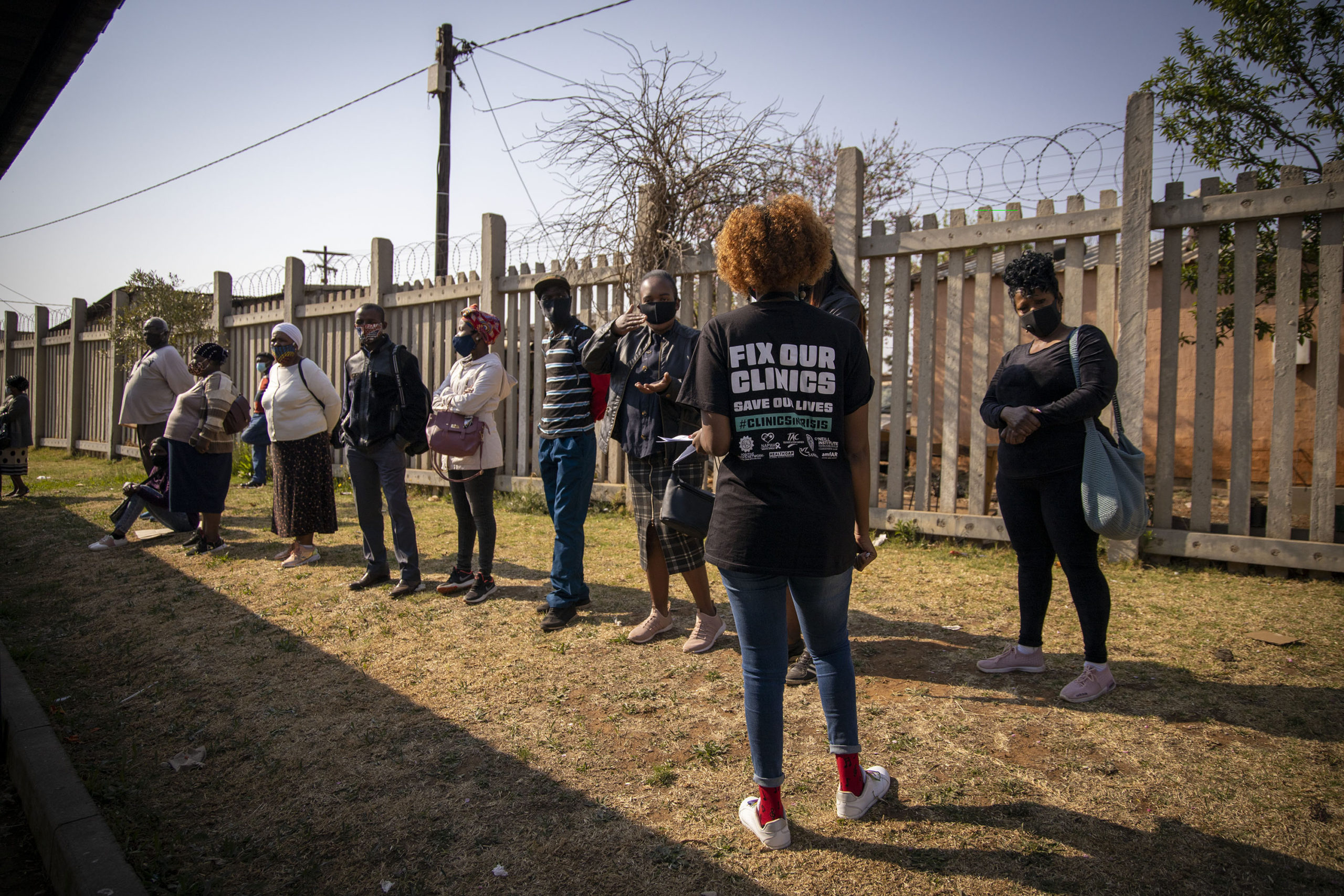MAVERICK CITIZEN OP-ED
Our data show where Gauteng public clinics are failing

Too many clinics are in crisis and it is driving the continuing HIV epidemic. People are dying because of it, argue members of the Ritshidze Project as they launch a report into the state of public sector facilities in Gauteng.
Far too many people test positive for HIV in Gauteng and then never start HIV treatment. Of those who do start HIV treatment, far too many get pushed out of care in the province. In fact, Gauteng is one of the provinces lagging furthest behind in reaching the UNAIDS “90-90-90” HIV targets.
The good news is the province has nearly reached the first 90 — at least 89% of people living with HIV know their status. That should be the hard part. With that we should be able to turn the situation around, because people living with HIV can use HIV treatment to suppress the virus and avoid transmission.
But no. Instead, a cascade of problems in public clinics in the province is driving people away and HIV is continuing to spread in the space left behind.
Data from PEPFAR show that more people may have fallen out of care this year than started. We might be tempted to think this is all down to Covid-19 — but even if we look backward to last year before Covid-19, 200,000 people newly started treatment in Gauteng, while 130,000 people stopped, or were pushed out, of treatment.
Too many clinics are in crisis and it is driving the continuing HIV epidemic. People are dying because of it.

Ritshidze monitors 120 clinics across Gauteng through observations, and by talking to patients and staff. (Photo: Rian Horn)
The state of Gauteng clinics
For World Aids Day 2020, the Ritshidze Project released our first provincial State of Health report and held a public hearing on the state of services in the province. Ritshidze is a community-led monitoring effort in which community members from organisations led by people living with HIV have been visiting clinics, speaking to patients and staff, observing the state of the facility, and turning what we learn into data. And with that data we can see what’s not working and propose solutions.
Many of the facility managers — the nurses leading our clinics — have welcomed us in and are eager to work with communities to improve the quality of services. But many of the problems are, unfortunately, bigger than they can solve alone. That’s why at our hearing we invited the Gauteng Department of Health, as well as officials from the national and district departments, and aid agencies. Here’s what we told them based on the data we’ve collected:

MSF Site B — Ubuntu Clinic in Khayelitsha. (Photo: supplied)
First, the province faces a human resources crisis and its driving long wait times for inadequate care.
Working people cannot afford to spend all day at the clinic. Yet our data shows people spend an average of 4.5 hours at Gauteng clinics, most of it waiting. In the province, people start queuing, on average, before 5.30am. At 23 clinics in the province, our monitors observed over 200 people waiting to be seen.
These waits are driven by insufficient staff. Over 75% of facility managers reported there was not enough clinical and non-clinical staff at the facility — about the same portion as the patients who said there was not. Professional nurses are particularly urgently needed — with at least 60 facilities in need, followed by 45 clinics in need of enrolled nurses, and 42 in need of doctors.
It is little wonder that people living with HIV, who have jobs and lives, struggle to stay in care alongside hundreds of others who wait hours at the clinic to see limited staff. That’s why we called on the Gauteng Department of Health to release the provincial human resource plan by end January 2021, including a comprehensive list of current vacancies, with all vacant posts being filled in the province this financial year.

Ritshidze’s community meeting highlighted the real situation people face using public clinics in Gauteng. (Photo: Rian Horn)
Second, the province needs to extend clinic hours.
In May 2019 the National Department of Health issued a circular directing clinics, especially these clinics we visited serving large numbers of people living with HIV, to extend opening hours from 5am to 7pm on weekdays and 8am to 4pm on Saturdays so working people can come, pick up medicines, and make clinic visits. But apart from those few open for 24 hours, patients at only one clinic we visited reported opening hours as early as 6am on weekdays. Facility managers say this is because they are short-staffed — but it has to be fixed as it helps explain why the province is losing so many people from care who simply cannot come during working hours.

Ritshidze speaks to many people living with HIV to better understand what makes them frustrated or even avoid accessing treatment at the clinic. (Photo: Shayne Robinson)
Third, the province must address stockouts of medicines.
After people face long queues, if they are turned away without medicines, they are likely not to come back. Across six months this year, there were 118 reports of HIV medicines stockouts. At over a quarter of facilities we monitored in the City of Johannesburg, facility managers confirmed they had patients who left without their medications — with Ekurhuleni not faring much better at 15% and the City of Tshwane at 12%. Only in Sedibeng were there no confirmed reports of patients leaving without medicines.
It is past time for the province to develop a strategy to address stockouts and shortages that are as a result of human resource shortages and poor management.
Fourth, TB infection control must be addressed.
Not one clinic in the province passed with a “green” rating in our monitoring. This means they were not implementing the basics to avoid TB infections like separating patients who are coughing and opening windows. Every clinic should be expected to meet these basic expectations since TB remains the leading cause of death amongst the people living with HIV that they are serving.
If this were a few clinics missing the mark we would address that at facility level — but this is clearly a system-wide problem and needs action by the provincial department of health.
These are just a few of our key concerns. Our full report details more — from issues with filing systems to ensuring multimonth dispensing to ensuring people living with HIV are treated with dignity and respect.
A key first step in addressing these concerns might be ensuring that the MEC of Health and the Head of Department positions are filled with long-term appointees.
We believe in public health services and we believe we can halt HIV. But for this to work we need our leaders to focus on quality in Gauteng and address these gaps that continue to drive the HIV crisis. DM/MC
*Setshogelo, Rambau and Xaba are Project Officers with the Ritshidze Project.


















 Become an Insider
Become an Insider
Thank you for noting the distress at clinic level and the consequences to patients, and staff as well. However, as someone who has been involved in several initiatives to reduce waiting times at Gauteng public clinics and hospitals I must ask that we do not default to ‘lack of staff’ as the only cause. We need to remove non-value-adding activities consuming the time and energy of staff before we add more staff. Batching, layout, filing and similar practices contribute. Adding additional staff in a poorly organised workplace, with dysfunctional systems, can exacerbate patient and staff experience. You may be right, at least in part, but let us not simply default to ‘lack of staff’ as the cause.
Thank you to the authors for this important article, and also to Norman Faull for his insightful comments